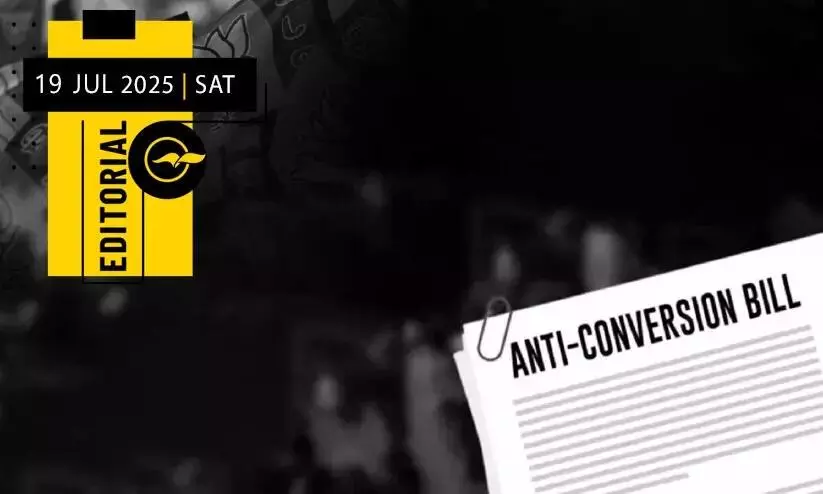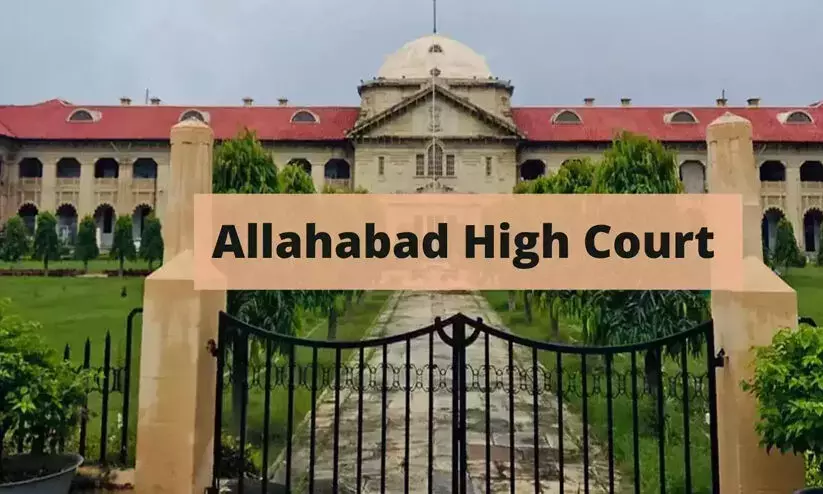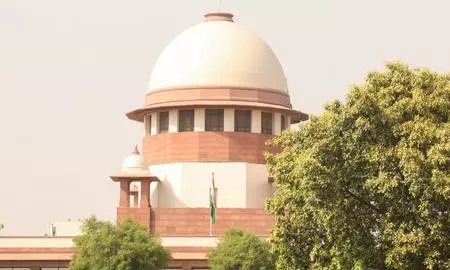
Now, Maharashtra too to bring in anti-conversion law
text_fieldsThe Maharashtra government is preparing to introduce a bill aimed at regulating religious conversions during the upcoming winter session. The BJP-led administration under Devendra Fadnavis claims that religious conversions are on the rise, and the government intends to bring in legislation that will be more stringent than the existing anti-conversion laws passed in ten other states. A discussion regarding this took place last Wednesday, with some members alleging that Christian missionaries are exerting significant influence over tribal communities. Accusations also included coercion through unauthorized churches, inducements via medical services, and forced conversions. There was also a demand that government benefits be denied to tribals after their conversion, as a way to curb such practices. It is in this context that the government has indicated its intent to frame a new law.
After Odisha the first state to enact a law prohibiting religious conversions in 1967, ten other states have followed suit, though Tamil Nadu’s law, introduced by the Jayalalithaa government in 2002, was withdrawn in 2006 following public outcry. While these laws differ slightly in name and detail across states, the sections and legal frameworks are similar. Conversion through coercion, financial inducements, or promises of assistance, including housing aid or food supply, is deemed illegal and punishable attracting fines and imprisonment.
Hindutva groups often use the charge of religious conversion as a tool to stoke fear and division. However, their efforts are fraught with constitutional hurdles. Article 25 of the Indian Constitution guarantees every citizen the right to profess, practice, and propagate the religion of their choice. To work around this, the laws are framed using terms such as "inducement" and "coercion". The argument often advanced is that while one may have the freedom to change religion, it does not amount to an absolute right to convert others, a distinction extended to preaching as well. In practice, in states where such laws exist, accusations frequently lead to police action and harassment even based on individual complaints. While convictions are rare, prolonged legal process itself serves as a punishment. This undermines religious freedom in a manner far removed from what the framers of the Constitution had visualised. The suggestion that Maharashtra’s law will be stricter than those of other states likely points to greater hurdles to conversions and harsher punishments for violations.
Petitions have been filed in various phases before the judiciary challenging anti-conversion laws passed in various states They include those submitted by individuals, as well as organizations such as Jamiat-ul-Ulema-e-Hind and Citizens for Justice and Peace (CJP). While the judiciary has not struck down these laws in principle, it has repeatedly acknowledged that fundamental right to practice and propagate one's religion cannot be denied, but at the same time conversions involving coercion or undue influence cannot be justified. Still, convictions remain scarce and numerous sections of the law have been flagged by the judiciary on constitutional grounds . However, many of the petitions brought before the Supreme Court are still pending without a verdict. There was even one petition with a plea from a BJP leader seeking a complete ban on religious conversions. The key questions that the Supreme Court have to settle are whether the laws regulating religious conversion violate the rights guaranteed under Article 21 of the Constitution, such as the right to privacy, personal liberty, marriage, choice, and dignity, or the right to freedom of religion and the right to live according to one’s conscience under Article 25. In this context, if and when the Maharashtra government passes a new law and it faces challenges in court, the people expect the Supreme Court to deliver decisions that are just and in consonance with the Constitution. In the meantime, the public must also voice opposition to unjust and intolerant legislation. Only that will act as a warning to the ruling parties that seek to divide the people.














